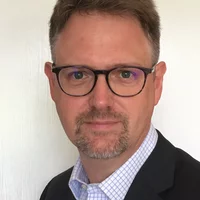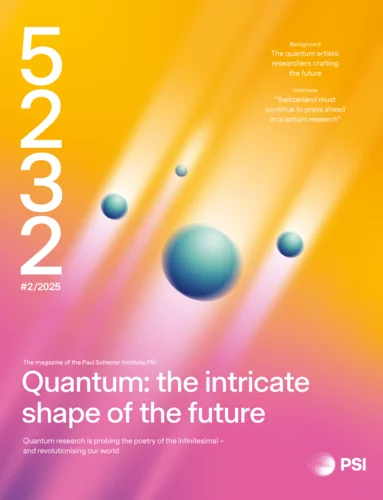Budget
In 2024, the federal financial contribution to PSI for research, teaching and the operation of large research facilities amounted to CHF 300 million for total annual revenues of around CHF 450 million.
The total revenues of PSI for research and teaching are composed as follows (in CHF million):
| Revenue for research, teaching & operation of the large research facilities | Mio. CHF |
| From federal contribution * | 302.0 |
| Tuition fees and other utilisation fees | 2.7 |
| Research contributions, mandates and scientific services | |
| – Industry-oriented research | 12.8 |
| – from SNSF, CTI and Special federal funding of applied research | 34.8 |
| – EU Framework Programmes for Research and Innovation | 6.9 |
| – Other project-oriented third-party funding | 17.8 |
| Donations and bequests | 1.1 |
| Other revenue | 66.9 |
| Keyfigures for expenses and investments | |
| Personnel expenses | 291.0 |
| Other operating expenses | 123.9 |
| Investment in tangible fixed assets | 67.0 |
* without federal contribution to accommodation
For more financial information, please refer to our Annual Report.
Employment
PSI had roughly 2300 employees at the end of 2024. One quarter of this figure was accounted for by postdoctoral students, doctoral students and undergraduates. A total of 38% of the positions are held by scientists. 53% of the positions were occupied by technicians and engineers. With their varied competencies, they ensure that the Institute’s existing scientific facilities always work reliably and that new ones are built according to plan. They thus make a major contribution to the Institute’s scientific achievements. 8% of the positions were held by administrative staff. 27% of the employees are women, while 55% are non-Swiss citizens.
Teaching and postgraduate support
In 2024, more than 350 postgraduate students were working on their doctoral research projects at PSI. More than 250 were employed on a regular basis by PSI. Most of these young researchers had previously undertaken undergraduate studies in physics, chemistry or engineering, mainly at ETH in Zurich or EPFL Lausanne, at the Universities of Zurich or Bern, or in other countries. However, PSI's researchers were not just engaged in the further education of students on-site at Villigen. More than 300 PSI scientists hold a lecturing post at a Swiss university or technical university. This involvement at universities is mostly unpaid, thus generating a double benefit for the universities, as they can offer their students access to state-of-the-art research at large facilities not available at any university. At the same time, the universities are also able to provide their teaching at a lower cost.
User laboratory and international network
PSI makes significant contributions as a national user laboratory to researchers from both the universities and industry. About two thirds of the total budget go towards the operation, maintenance and ongoing development of the large research facilities, as well as the supervision and support of researchers from Swiss universities. In 2024, the Institute supported about 2100 scientists from Switzerland and abroad at its large research facilities.
The success of a user facility is reflected in the interest of the scientific community in performing experiments at that facility and in the number of publications generated which are based on experiments carried out at it.
In 2024, around 750 articles based on experiments at PSI's large research facilities are published in scientific journals. More than 3500 visits to PSI per year take place of scientists from around the world who come to perform experiments at one of the 40 facilities. Most users come to PSI from Switzerland or member countries of the European Union. The Swiss scientists are evenly distributed between PSI itself and other centres. Most of the external researchers come from ETH Zurich, but regularly scientists come from EPF Lausanne, the Swiss universities and the Swiss Federal Laboratories for Materials Testing and Research, Empa.
| Statistics for the year 2024 | ||||||
|---|---|---|---|---|---|---|
| PSI Facility | Swiss Light Source SLS * | SwissFEL | Spallation Neutron Source SINQ | Swiss Muon Source SμS | CHRISP | Total 2024 |
| Number of user visits | 0 | 234 | 660 | 206 | 860 | 1960 |
| Number of experiments | 0 | 28 | 426 | 240 | 13 | 707 |
* The Swiss Light Source SLS synchrotron was upgraded, which is why no experiments could be carried out in 2024.
Proton therapy – immediate benefit for the society
Some sections of society benefit directly and immediately from out-patient proton therapy at the Institute. In 2024, about 5500 fractions were delivered to cancer patients and the center for proton therapy at PSI registered about 1800 clinical consultations. A success rate of more than 98% puts PSI at the very forefront internationally in regard to the successful irradiation of melanoma of the eye. In 2024, approx. 30% of the patients with non-ocular tumours were children and teenagers. Just less than half of these were infants, who received their treatment under anaesthesia. Two irradiation units (Gantry 2 and Gantry 3) for non-ocular tumors and one unit (OPTIS2) for ocular tumors are ready for patient treatment.
ETH Domain
The Paul Scherrer Institute is part of the ETH Domain.
Further members: ETH Zurich | EPF | Lausanne | EMPA | WSL | Eawag

